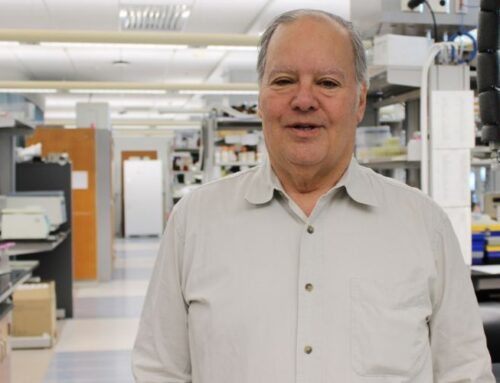Resetting the Clock: How Dr. Deborah Bell-Pedersen’s Research on Fungal Timekeeping Could Unlock Health Secrets
By: TAMU Biology
 Every living thing runs on a clock. But how do our internal rhythms, our circadian cycles, regulate not just when we sleep and wake, but how our bodies function at the molecular level? At Texas A&M University, Dr. Deborah Bell-Pedersen is uncovering surprising answers by studying the humble fungus Neurospora crassa.
Every living thing runs on a clock. But how do our internal rhythms, our circadian cycles, regulate not just when we sleep and wake, but how our bodies function at the molecular level? At Texas A&M University, Dr. Deborah Bell-Pedersen is uncovering surprising answers by studying the humble fungus Neurospora crassa.
Her lab investigates how circadian rhythms control gene expression and protein production, especially in ways that don’t involve changes in mRNA levels—long a biological mystery. Their work revealed that biological clocks can control protein production by altering how ribosomes translate genetic messages. They’ve shown that the molecular clock modulates key players like translation initiation and elongation factors, and even tweaks ribosome composition to shape how and when proteins are built.
 Even more unexpectedly, they discovered that the fidelity of protein synthesis, how accurately the genetic code is translated, also follows a circadian rhythm. This fidelity, essential for cell health, declines with age, but may be boosted by restoring circadian strength. Dr. Bell-Pedersen’s work expands from the research focus into training the next generation, she says, “With an amazing team of undergraduate, graduate and postdoctoral trainees, and support from the NIH and WoodNext Foundation, we have uncovered surprising ways that the clock controls protein production, and are using this information to develop therapies for healthy aging in humans.”
Even more unexpectedly, they discovered that the fidelity of protein synthesis, how accurately the genetic code is translated, also follows a circadian rhythm. This fidelity, essential for cell health, declines with age, but may be boosted by restoring circadian strength. Dr. Bell-Pedersen’s work expands from the research focus into training the next generation, she says, “With an amazing team of undergraduate, graduate and postdoctoral trainees, and support from the NIH and WoodNext Foundation, we have uncovered surprising ways that the clock controls protein production, and are using this information to develop therapies for healthy aging in humans.”
Why It Matters
These discoveries have major implications for aging, disease treatment, and drug metabolism. Since circadian rhythms influence how cells produce and repair proteins, Dr. Bell-Pedersen’s work could one day lead to strategies that improve translation accuracy and extend healthy lifespan by syncing or enhancing the body’s natural clock.





